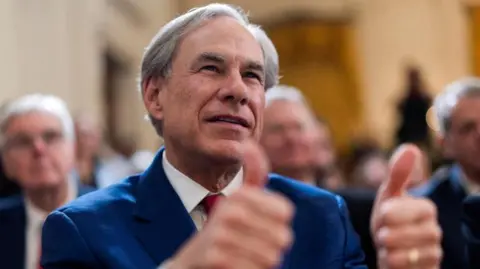In a significant move affecting the tech landscape, Texas Governor Greg Abbott has just signed an impactful online child safety bill that mandates major app stores, specifically those operated by Apple and Google, to implement robust age-verification processes. This groundbreaking legislation, which is set to take effect on January 1, 2026, requires that minors in the state have parental consent before they can download applications or make in-app purchases. This initiative may significantly alter how app marketplaces operate in the United States, particularly in Texas, which ranks as the second most populous state in the nation.
The law, while aimed at protecting children from potential online dangers, has generated opposition from the tech giants involved. Apple, in particular, expressed its concerns through a spokesperson who stated, “We believe there are better proposals that help keep kids safe without requiring millions of people to turn over their personal information.” In contrast, Google’s response was notably absent, as they did not provide immediate commentary regarding the new law.
Texas isn’t the first state to pursue such legislation; Utah had previously enacted a similar law earlier this year, reflecting a growing trend among conservative states to prioritize child safety online. On a federal level, discussions have also been mortared with the introduction of the Kids Online Safety Act (KOSA), which seeks to impose stricter design requirements on social media platforms in order to mitigate risks faced by young users. Though KOSA passed in the US Senate in the previous year, it has faced stagnation in the House of Representatives, which underscores the challenges of enacting federal regulations in a divided political climate.
The implications of these laws extend beyond mere digital safety. They could create a substantial burden on app platforms like Apple and Google, which typically shy away from collecting sensitive personal information from users. As it stands, critics from the tech community, including Meta, the parent company of Facebook and Instagram, have indicated a belief that app store providers ought to shoulder the responsibility of verifying the ages of their users.
Conversations surrounding Governor Abbott’s law have reportedly reached the highest echelons of Apple, with CEO Tim Cook reportedly attempting to intervene personally prior to the legislation’s passage. An Apple representative reiterated the company’s commitment to online safety for children yet expressed severe reservations about how this law could potentially compromise the privacy rights of all Texans. They claim that the law’s mandates would force app markets to gather and maintain sensitive information about users, even for applications that serve harmless purposes like offering weather updates.
Moreover, Apple has recently made strides in enhancing child safety measures on its devices, including newly announced protocols for younger users that mandate parental consent for accessing specific features, such as the App Store. Despite implementing these measures, the Texas law places broader requirements that could affect overall app accessibility.
As the tech industry stands at a crossroads regarding child safety regulations, states like Texas have begun to assert their own legislative measures in the absence of cohesive federal laws. This localized approach has historically intensified scrutiny on Big Tech and its practices, further entrenching the ongoing conflict between legislative authority and corporate autonomy in the digital realm.
In summary, Texas’s new online safety legislation signifies a pivotal shift in how digital platforms may operate, specifically targeting age verification for minors. As the law rolls out, it paves the way for future regulatory activities across different states and may prompt broader conversations centered on the acceptable intersection of user privacy, safety, and corporate responsibility in the ever-evolving digital landscape.



